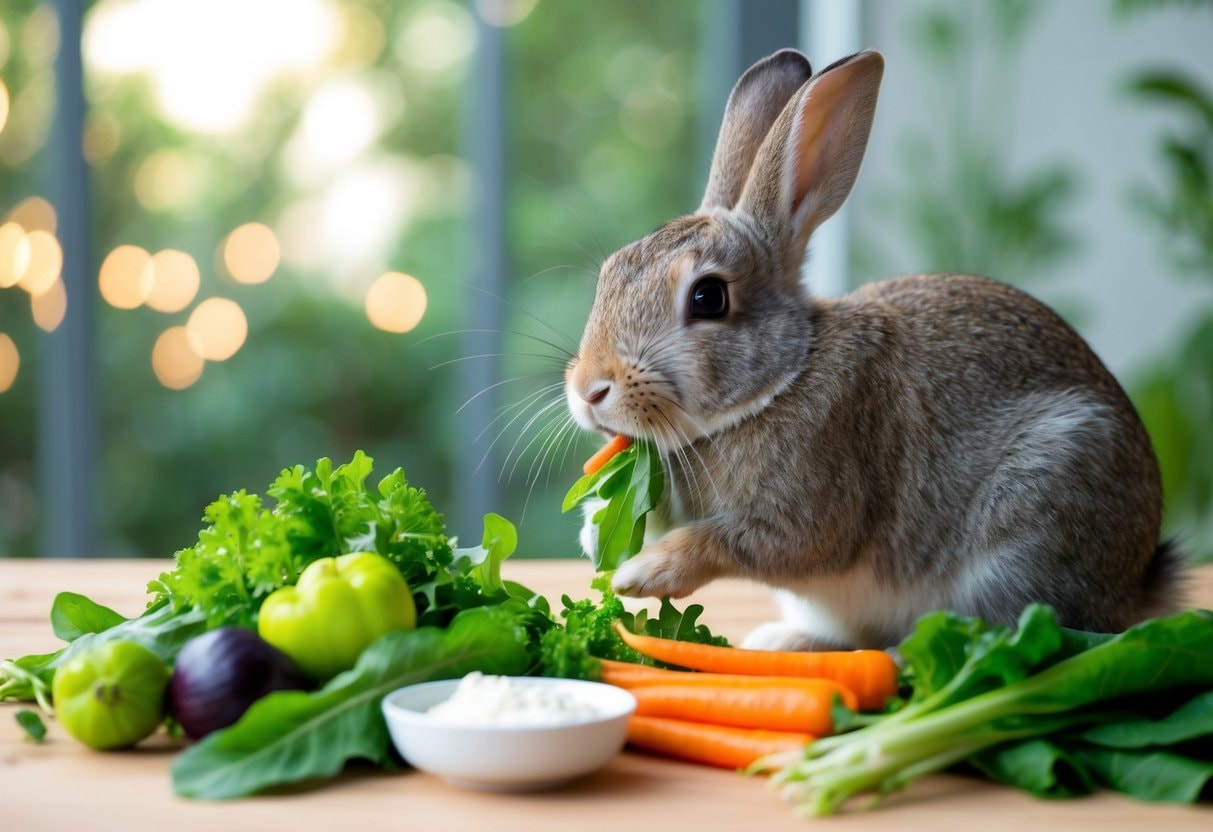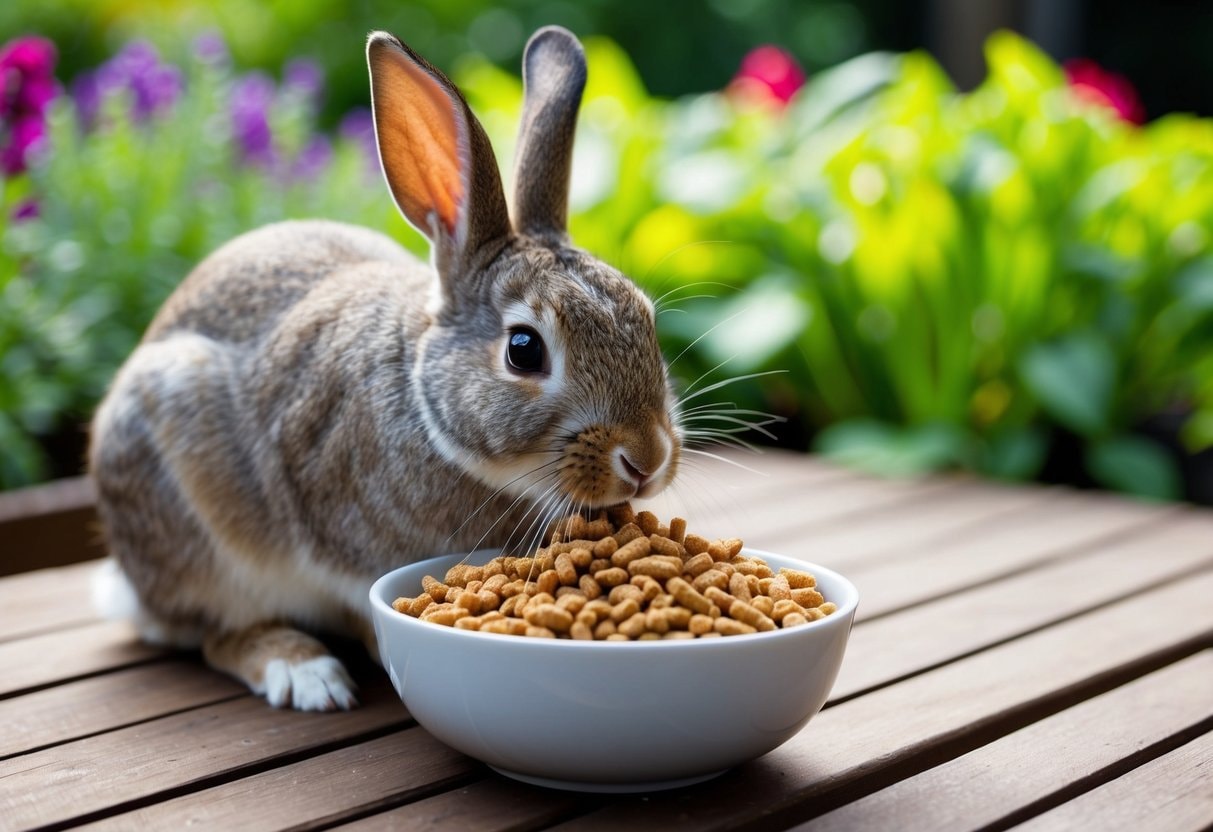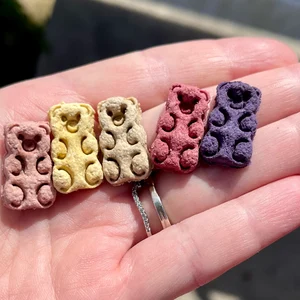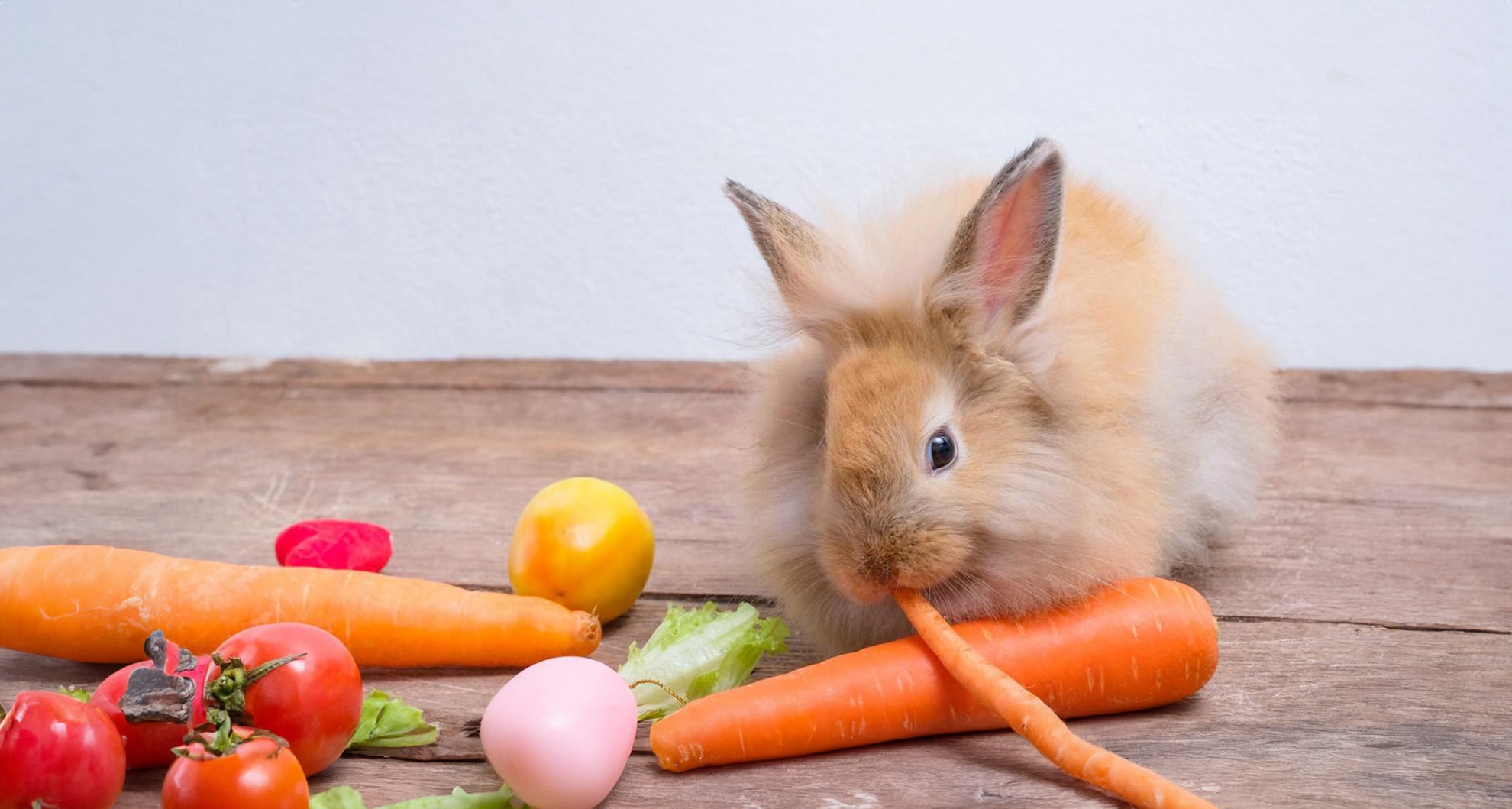Probiotics for rabbits are more than just a trend—they’re a powerful tool in supporting your pet’s digestive health and overall well-being. Rabbits are delicate creatures with unique digestive systems, which makes maintaining a balanced gut microbiome essential for their vitality. From aiding nutrient absorption to boosting immunity, probiotics play a vital role in helping your rabbit thrive and resist common health issues like digestive upsets and stress-related complications.
But what exactly are probiotics, and why do they matter for rabbits? In this guide, we’ll dive into everything you need to know about incorporating probiotics into your rabbit’s diet. Whether you’re looking to prevent potential health issues or simply want to provide the best care possible, we’ll explore how probiotics work, their benefits, and safe ways to introduce them.
Enhancing Rabbit Wellness: The Essential Guide to Probiotics for Your Pet

Keeping your furry friend healthy is a top priority for any rabbit owner. One way to boost your rabbit’s wellness is by giving them probiotics for rabbits. These helpful bacteria can improve your pet’s digestion and overall health. Probiotics for rabbits can help keep your rabbit’s gut balanced and support their immune system. They work by adding good bacteria to your rabbit’s digestive tract, which can help prevent tummy troubles and keep your bunny feeling its best.
Rabbits have sensitive stomachs, so choosing the right probiotics is important. Look for products made just for rabbits. You can find probiotic supplements as powders or pellets. Adding these to your rabbit’s diet is easy and can make a big difference in their health.
Key Takeaways
- Probiotics add good bacteria to your rabbit’s gut.
- Choose rabbit-specific probiotic products for best results.
- Adding probiotics to your rabbit’s diet is simple and beneficial.

Understanding Your Rabbit’s Digestive System
Rabbits have a unique digestive system that requires special care. Your bunny’s gut health plays a big role in their overall well-being.
Importance of Gut Health
Your rabbit’s digestive system is complex and delicate. The cecum is a key part of their gut. It’s where helpful bacteria break down fiber. A healthy gut microbiome is crucial for your bunny. It helps them get nutrients from their food. It also keeps their immune system strong. Fiber is super important for rabbits. It keeps food moving through their system. Without enough fiber, your rabbit can get very sick. To keep your bunny’s gut happy:
- Give them lots of hay (80% of their diet).
- Offer fresh veggies daily.
- Limit treats and pellets.
- Make sure they always have fresh water.
Common Digestive Upsets in Rabbits
Rabbits can get tummy troubles easily. GI stasis is a serious problem where the gut slows down or stops. It can be caused by:
- Not enough fiber.
- Too many treats.
- Stress.
- Pain.
- Some medicines.
Signs of Digestive Upset in Rabbits:
- Not eating or pooping.
- Small or mushy poops.
- Bloated belly.
- Grinding teeth (a sign of pain).
If you see these signs, call your vet right away. Quick treatment is key to helping your bunny feel better. To prevent digestive problems:
- Keep your rabbit’s diet consistent.
- Make diet changes slowly.
- Reduce stress in their environment.
- Encourage exercise.
The Role of Probiotics for Rabbits

Probiotics play a vital part in keeping your rabbit healthy. These helpful microorganisms support your bunny’s gut and immune system in many ways.
Benefits of Probiotics
Probiotics can improve your rabbit’s digestion and overall health. They help balance the gut microbiome, which is key to your furry friend’s well-being. These friendly bacteria boost your rabbit’s immune system. This means your pet can fight off illnesses better. Probiotics also help your bunny absorb nutrients from food more easily. This can lead to better growth and a shinier coat.
Some studies show probiotics may reduce digestive issues in rabbits. This includes problems like diarrhea or gas. Adding probiotics to your rabbit’s diet might even improve their mood. A healthy gut often means a happier bunny!
Types of Probiotic Strains
Several types of probiotic strains can benefit your rabbit. Each kind has its special job in keeping your pet healthy. Lactobacillus species are common probiotics for rabbits. This includes L. acidophilus, L. casei, and L. plantarum. These help maintain a healthy gut environment. Bifidobacterium strains like B. bifidum are also good for rabbits. They support your pet’s immune system.
Enterococcus faecium is another helpful probiotic. It can improve your rabbit’s digestion and nutrient absorption. Some probiotic mixes for rabbits also include Bacillus species. These can help your bunny’s body break down food better. Pediococcus acidilactici is a probiotic that may boost your rabbit’s natural defenses against harmful bacteria.

Did You Know?
Oxbow’s Digestive Support supplement is designed to help rabbits’ gastrointestinal health. It contains probiotics and prebiotics to support good gut bacteria. This product may help rabbits with minor digestive issues. Always consult your vet before starting any new supplements.
Prebiotics and Their Importance
Probiotics for rabbits play a big role in keeping your rabbit’s gut healthy. They feed the good bacteria in your bunny’s tummy and help digestion. Probiotics for rabbits come from plant fibers that your rabbit can’t digest.

Dietary Fiber and Herbivore Nutrition
Rabbits are herbivores, which means they eat only plants. Their bodies are made to break down lots of fiber. Fiber is super important for your bunny’s health. Prebiotics are like fertilizer for good gut bacteria. They help these helpful bugs grow. This keeps your rabbit’s tummy working well.
Fiber also keeps your bunny’s teeth healthy. Chewing on tough plants wears down their ever-growing teeth. This stops tooth problems that can make eating hard.
Common Prebiotic Sources
Your rabbit can get prebiotics from many yummy foods. Here are some great choices:
- Chicory root.
- Dandelion greens.
- Apple (no seeds).
- Banana (as a treat)
- Carrot tops.
Inulin is a common prebiotic added to rabbit food. It comes from chicory root and helps good bacteria grow. You can also find special rabbit foods with added prebiotics. These can boost your bunny’s gut health. Just remember, fresh veggies should still be the main part of their diet.
Choosing the Right Probiotics for Your Rabbit

Picking the best probiotics for rabbits for your furry friend can seem tricky. But don’t worry! With a few key things to look for, you’ll be able to find a great option to keep your bunny’s tummy happy and healthy.
Reading and Understanding Labels
When shopping for rabbit probiotics, always check the label carefully. Look for products made specifically for rabbits or small animals. The guaranteed analysis should list the types and amounts of beneficial bacteria.
Pay attention to the number of colony-forming units (CFUs). This tells you how many live bacteria are in each dose. A good rabbit probiotic usually has at least 1 billion CFUs per serving. Some popular options include Equa Holistics HealthyGut Probiotics and Oasis Rabbit Vita Drops. These are made with rabbit-friendly strains of bacteria.
Probiotic Supplements vs. Natural Sources
While supplements are handy, you can also give your rabbit natural probiotics. Fresh vegetables like leafy greens have good bacteria that support gut health. Oxbow Natural Science Papaya Support is a tasty treat combining probiotics and digestive enzymes. It’s a great way to give your bunny a health boost.
For daily use, many rabbit owners like Benebac. It’s a powder you can sprinkle on wet greens. This makes giving your rabbit a regular dose of good bacteria easy. Remember, a balanced diet with plenty of hay is the best way to keep your rabbit’s digestive system healthy. Probiotics are just an extra boost to help things along!
Check out this video on when to use probiotics for rabbits and the benefits they offer.
By: Superfood for RODENTS & RABBITS
Administering Probiotics to Your Rabbit

Giving probiotics for rabbits to your pet can be easy and helpful. The right method and timing are key to keeping your bunny’s tummy happy.
Correct Dosages and Methods
For pet rabbits, probiotic gels or powders work well. A common option is Benebac Plus, which comes in a gel form. Follow the package instructions for dosage based on your rabbit’s weight. Gel probiotics can be put on your rabbit’s front paw. They’ll lick it off while grooming. You can also mix powdered probiotics into their food. Start with a small amount and slowly increase to the full dose. This helps your rabbit get used to the new taste and smell.
When to Use Probiotics
Probiotics are great after your rabbit takes antibiotics. They help restore good gut bacteria that antibiotics might have killed. Use them when your bunny has digestive upset, like soft poop or gas. Probiotics can help get things back to normal.
You can also give probiotics during stressful times, like moving to a new home or after a vet visit. Stress can upset your rabbit’s tummy, and probiotics can help. Some rabbit owners give probiotics regularly as part of their pet’s diet. Ask your vet if this is right for your bunny.
Potential Side Effects and Considerations
While probiotics for rabbits can be helpful, you should be aware of possible side effects. Digestive issues may occur when first introducing probiotics to your bunny’s diet. Watch for signs like:
- Soft stools.
- Mild gas.
- Changes in appetite.
These usually go away as your rabbit’s system adjusts. If problems persist, talk to your vet. You should be careful when choosing probiotic products. Not all are made specifically for rabbits. Some probiotics tested on other animals may not be safe or work well for bunnies.
Start with a small amount and slowly increase the dose. This helps prevent tummy troubles. If your rabbit has existing health problems, check with your vet before giving probiotics. Remember, probiotics aren’t a cure-all. They work best as part of a balanced diet and good care routine. Your bunny still needs proper food, clean water, and regular vet check-ups to stay healthy.
Supporting Rabbit Health Beyond Probiotics

Keeping your rabbit healthy involves more than just probiotics for rabbits. A well-rounded approach includes proper nutrition and a stimulating environment.
The Importance of a Balanced Diet
Your rabbit needs a diet rich in fiber to stay healthy. Give them unlimited hay, making up about 70% of their diet. This helps wear down their teeth and keeps their digestive system moving. Offer fresh veggies daily. Dark leafy greens like kale and romaine lettuce are great choices. They’re packed with antioxidants that support your rabbit’s health.
Limit treats and pellets. Too many can lead to obesity and other health issues. Stick to small amounts of fruit as occasional treats. Always provide fresh, clean water. Change it daily to keep it fresh.
Environmental Enrichment and Care
Your bunny needs more than just food to thrive. A happy rabbit is a healthy rabbit! Give them plenty of space to hop and play. A large enclosure or rabbit-proofed room is ideal. Provide toys for mental stimulation. Cardboard tubes, willow balls, and untreated wood blocks are great options.
Keep their living area clean. Regular cleaning helps prevent health problems and makes your bunny more comfortable. Spend time with your rabbit every day. Pet them, play with them, and let them explore under your supervision. Regular vet check-ups are crucial. They can catch issues early and keep your furry friend in top shape.
Check out this video on how to take care of a rabbit.
By: AnimalWised
Boosting Your Rabbit’s Health with Probiotics
Adding probiotics for rabbits into your pet’s care routine can be a simple yet impactful way to support their health and happiness. These beneficial bacteria offer significant benefits, from promoting better digestion to strengthening immunity and helping rabbits absorb nutrients more effectively. By selecting quality probiotic products or natural sources, you can easily boost your rabbit’s diet that keeps their digestive system balanced and resilient.

Probiotics are just one piece of the puzzle for keeping your rabbit thriving. A balanced diet, an enriched environment, and regular vet care contribute to your rabbit’s overall well-being. With the right approach, you can help your furry friend stay healthy and energetic, ready to enjoy each day with you to the fullest.
Frequently Asked Questions
Rabbit owners often have questions about probiotics for their furry friends. Let’s address some common concerns about probiotic use, natural options, and proper administration for bunnies.
What Are the Best Probiotics for My Rabbit's Health?
The best probiotics for rabbits contain specific strains that support their digestive system. Brewer’s yeast and Enterococcus faecium are two types that are helpful for bunnies. These probiotics can help maintain a healthy gut balance. Look for products made especially for rabbits. Avoid giving your bunny probiotics meant for humans or other animals.
Are There Natural Probiotic Options Suitable for Rabbits?
Yes, there are natural probiotic sources for rabbits. Fresh vegetables and herbs can provide natural probiotics. Dandelion greens, cilantro, and parsley are good choices. These foods contain beneficial bacteria that can support your rabbit’s digestive health.
How Do I Prepare Homemade Probiotics for My Bunny?
You can make a simple probiotic treat for your rabbit using plain, unsweetened yogurt. Mix a small amount of yogurt with your bunny’s favorite vegetables. Remember to introduce new foods slowly. Start with tiny amounts to see how your rabbit reacts.
Connect with Us on Social Media and Spread the Bunny Joy!
Are you passionate about bunnies? We are, too, at The Rabbit Hop! Become part of our online community and enjoy:
Bunny Fun: Enjoy charming videos, discover interesting facts, and get tips for keeping your bunny happy!
Product Recommendations: Find the highest-rated items ideal for your furry friend.
Bunny Network: Engage with fellow bunny lovers who share your enthusiasm.
Follow us on:



